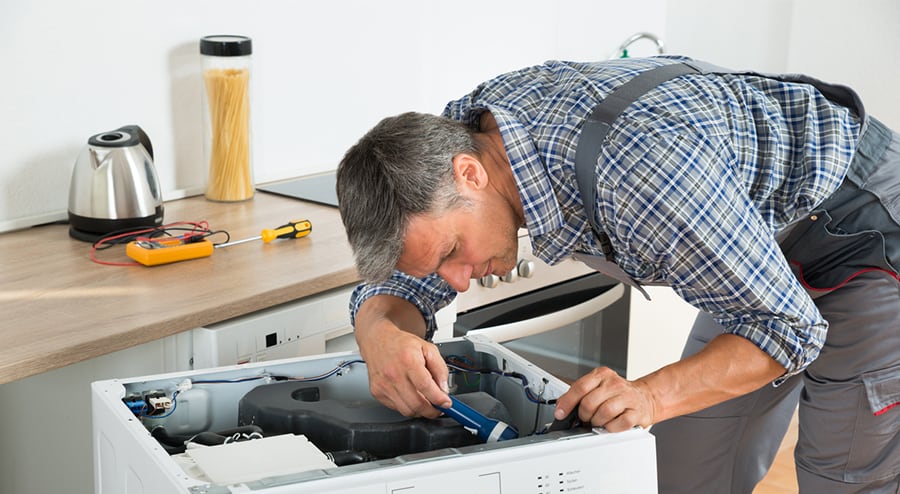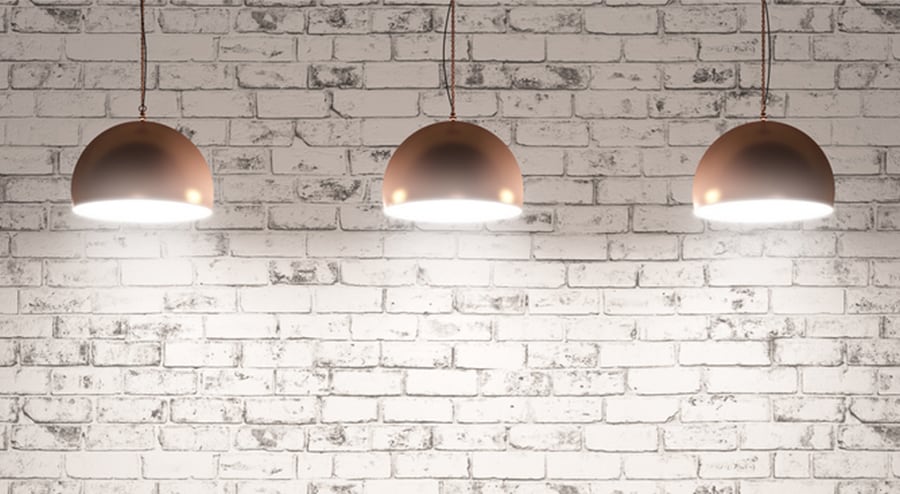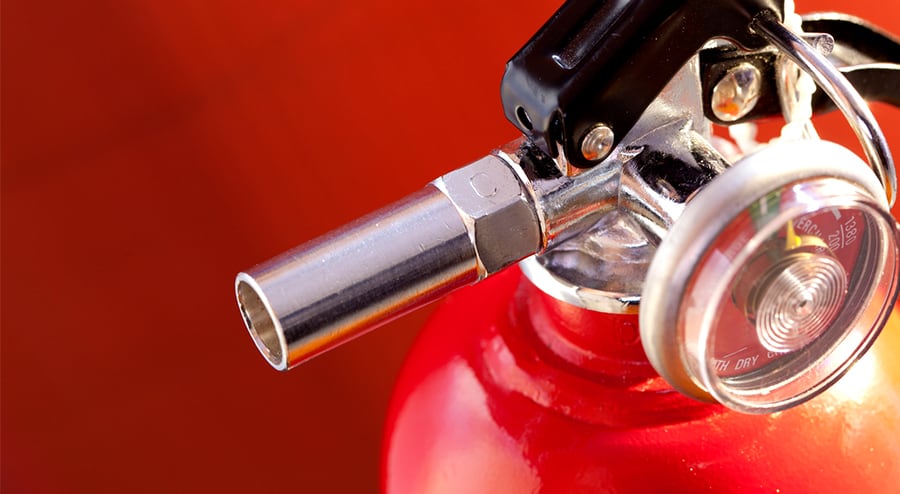When something becomes as essential to our lives as electricity, it can be easy to become complacent about its potential hazards. Unfortunately, your home electrical system is the last thing you should be complacent about. According to the National Fire Protection Association, electrical failures or malfunctions caused an average of 45,210 home structure fires every year in the United States between 2010 and 2014. On average, these led to 420 civilian deaths a year and an additional 1,370 civilian injuries. The average annual property damage incurred as a result of these electrical fires is estimated to be $1.4 billion.
Although the dangers associated with electrical issues are often silent, they can clearly be quite deadly. Fortunately it’s easy to stay safe if you keep in mind some selected tips. Here are some of the best ways to avoid causing problems with your wiring or exposing yourself to electric shocks.
Indoors
Lighting
- Watch for flickering lights. If your lights are flickering, you may be overloading your electrical circuit by having too many appliances plugged in at once. This could also signify other electrical issues beneath the surface.
- Always be sure to use light bulbs of the proper wattage in lamps and light fixtures. Using a bulb with a higher-than-recommended wattage can cause the fixture to overheat, damaging wiring and creating a fire hazard.
Small Appliances
- Always unplug any appliance or device that emits a spark.
- If an appliance has ceased to function for some reason, don’t leave it plugged in.
- Never clean or repair an appliance while it’s still plugged in.
- Always keep your electrical appliances away from water when you’re using them. Radios and hair dryers, for example, should never be used near a bathtub or sink full of water.
- Always unplug your toaster and let it cool before attempting to remove any food stuck in the appliance.

Electrical Systems
- Always keep electrical outlets free and clear of objects other than appropriate electrical plugs. (Never place fingers, tools, or anything else into electrical sockets.)
- If you’re using a polarized plug (recognizable by the fact that its prongs are of different sizes), always use a polarized receptacle. Never alter a polarized plug so you can use it in an old, unpolarized receptacle.
- If you have to use a grounding adapter, always use a neon tester (an inexpensive device available at most hardware stores) to verify the receptacle is grounded before proceeding.
- If your circuit breaker continually trips, contact an electrician. It’s possible you’ll need to have your electrical system reconfigured so it can safely handle the load on one or more of your household circuits.
- On the other hand, a circuit breaker that never goes off is also a problem. Some older breaker boxes are known to have breakers that sometime fail to trip when needed, and these fuse boxes are known fire hazards. If your breaker box is outdated, replace it immediately.
Cords & Extension Cords
- Only use extension cords when necessary.
- Be sure to use cords that are appropriate for the task. Certain household appliances, for example, require heavy-duty cables. Check the rating labels on the cords and appliances and upgrade to a higher-rated cord if necessary.
- Immediately replace any cords that show signs of wear or damage. Worn cords are often the cause of electrical injuries and fires.
- Never unplug something from an outlet by pulling the cord; instead, firmly grasp the plastic housing at the outlet itself to unplug the item.
- If you’re consistently powering several items from a single socket, use a power strip (which often has a circuit breaker of its own) instead of a multi-outlet extension cord.
Overload
You overload a circuit when you drawing too much power for it to bear safely. To avoid overloads:
- Don’t keep appliances plugged in when they’re not in use; even when they’re turned off, they’re still connected to electricity.
- Only use single power strips when necessary, and do so sparingly.
- Never “piggyback” one power strip onto another. Power strips are built to withstand a certain amount of energy. Chaining units together can easily exceed your circuits’ capabilities, leaving you susceptible to fire hazards.
Outdoors
Power Lines
- Keep kites away from overhead power lines. If a kite gets stuck in a power line, leave it be.
- Stay a safe distance from substations, transformer boxes, and electrical poles.
- Know where your power lines are so you can be aware of them and avoid them when using ladders and long-handled tools.
Using Outdoor Outlets
- Always cover outdoor outlets with protective flaps.
- Always use a fully enclosed, water-tight flap if your outlets will be in use on a long-term basis (for powering holiday lights, for example).
Electrical Equipment and Power Tools
- Do not touch or tamper with electrical equipment.
- Never use electric appliances in the rain.
Receptacles, Outlets, and GFCI
GFCI stands for ground-fault circuit interrupter. These devices are intended to prevent shocks by constantly monitoring the electricity levels on the circuit. A properly working GFCI will trip the circuit if it senses an imbalance of just 1/2000 of an amp, shutting down the device and providing a layer of protection against electrocution.
Install GFCI outlets anywhere there’s water:
- Bathrooms
- Kitchen
- Landry Room
- Garage
Power surges and lightning strikes can cause GFCI outlets to malfunction without your knowledge. Test your GFCI outlets every six months, either by using the “test” and “reset” buttons on the front of the outlet or by using a dedicated GFCI tester available at most hardware stores. Have a professional replace your outlets if they’re not working.
What to Do If There’s an Electrical Emergency
Fire Extinguishers
- You should have at least one first extinguisher on each floor of your home.
- Check your first extinguishers annually and replace them if they’re outdated.
- Know how to use your fire extinguisher before a problem arises to prevent panic.
Every fire extinguisher is labeled with a letter grade, each of which indicates the type of fire for which it will be most effective. “C” designated fire extinguishers are intended for live electricity. You may notice number classifications on your fire extinguisher before the letter designation. Higher numbers indicate greater effectiveness in fires; however, C designations will not denote numbers, as this designation is simply telling you the chemicals in the extinguisher won’t conduct electricity.
Electrocution Risks
Electrocution can result in serious injury, so you don’t want to take your chances. It can cause:
- Electric shock
- Burns
- Injury resulting from exposure to arcing
- Death
Some of the most serious electrocution risks exist where water is present. Be mindful, however, that these risks don’t only arise when you’re using small appliances near a water source. If you’re fixing your water heater, for example, you could expose yourself to significant electrocution risks if you’re not careful.
How to Shut Your Power Off
Flip the main breaker circuit breaker to shut off all power in your house. This is best if you’re panicked or uncertain, as it’s the fastest option. Otherwise, you can turn off power to individual rooms or areas.
When to Call for Help
While there are many projects in the home that are perfectly suitable for DIY endeavors, electrical work is seldom on this list. Professional electricians receive ample schooling and on-the-job training, making them experts in this highly hazardous field. If you’re ever unsure about the potential problems in your home, of if you’ve started a project you can’t finish, contact an electrician before moving forward.
If you’ve already begun to do the work yourself, and you’ve run into problems, call 911 if:
- There is a fire or smoke emitting from your outlets or wiring;
- You’ve experienced a steam burn from your hot water heater;
- You’ve severely shocked yourself.
Unfortunately, not every accident can be prevented, but there are plenty of things you can do to protect your home and family from fires or injuries resulting from electrical issues. The more in-tune you are with potential hazards, the more safeguards you can put into place to keep your family safe.



